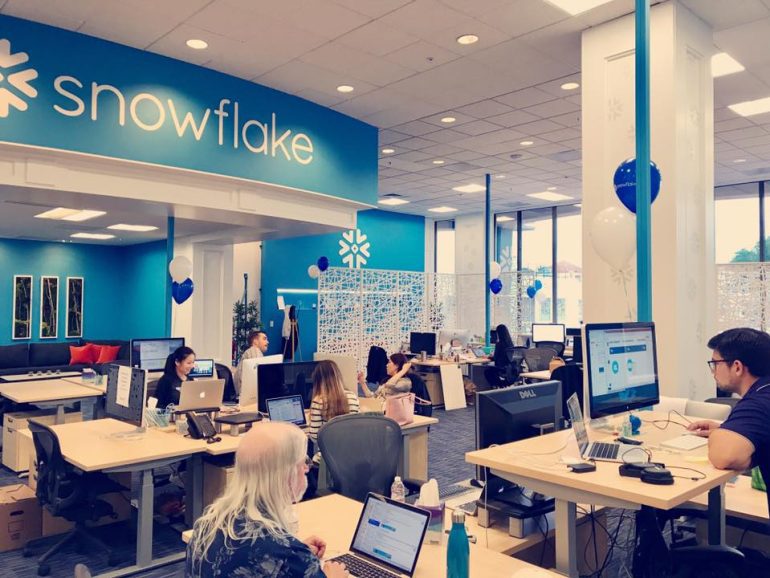- Snowflake’s report reveals an average of 90 AI-apps built per day in 2023.
- Chatbots, powered by large language models (LLMs), now constitute 46% of total LLM apps.
- 65% of Streamlit developers are engaged in work-related LLM projects.
- Python emerges as the preferred programming language for AI development.
- Snowpark facilitates rapid and cost-effective app development, witnessing a surge in Python adoption.
- Snowflake Native Apps experience a 311% increase, signaling a shift towards unified data and application development.
- The report highlights a 123% uptick in unstructured data processing, emphasizing the importance of robust data governance.
- Advanced data governance measures, including data tagging and classification, have seen significant adoption.
- Conclusion: Organizations must accelerate AI experimentation, modernize data strategies, and prioritize data governance to capitalize on the opportunities presented by advanced AI technologies.
Main AI News:
Snowflake, a leading Data Cloud company, unveils staggering statistics in its latest report, indicating the meteoric rise of AI-powered applications. According to the report titled “Data Trends 2024,” an average of 90 AI-apps were built per day in 2023, marking a significant milestone in the tech landscape.
The report highlights the increasing dominance of large language models (LLMs) in app development, particularly in the realm of chatbots. From constituting a mere 18 percent of total LLM apps, chatbots have surged to encompass 46 percent as of May 2023, signaling a profound shift in industry dynamics.
Moreover, insights gleaned from Snowflake’s vast customer base reveal a pronounced emphasis on leveraging generative AI for workplace efficiency and productivity. A remarkable 65 percent of surveyed Streamlit developers cited work-related LLM projects, underscoring the strategic imperative of integrating AI into daily operations.
Vijayant Rai, Managing Director- India at Snowflake, emphasizes the burgeoning significance of conversational apps, noting that human interaction paradigms are increasingly influencing app design. With the ease of building and deploying conversational LLM applications, driven by robust data governance measures, businesses can seamlessly integrate interactive chatbots to meet evolving user needs.
A Deeper Dive into Development Trends
Further analysis sheds light on the rapid pace of LLM application development, with over 33,000 applications crafted by 20,076 developers within a span of nine months. Python emerges as the preferred programming language, owing to its accessibility, vibrant community, and extensive library ecosystem.
In the realm of rapid app development, Python’s usage outpaced that of Java and Scala, with an impressive 571 percent growth rate. Snowpark, facilitating cost-effective app development, witnessed a surge in Python adoption, reflecting developers’ preference for agile prototyping and experimentation.
Moreover, a notable trend indicates a shift towards developing LLM applications directly on data management platforms. Snowflake Native Apps witnessed a remarkable 311 percent increase, underscoring the efficiency gains associated with unified data and application development environments.
Elevating Data Governance in the AI Era
As AI adoption proliferates, the importance of robust data governance becomes paramount. Companies are increasingly harnessing unstructured data, necessitating a modern approach to data governance to safeguard sensitive information.
Snowflake’s report highlights a 123 percent uptick in unstructured data processing, unlocking new avenues for business insights. Vijayant Rai emphasizes the transformative role of data governance, emphasizing its tripartite focus on data understanding, security, and value delivery.
The adoption of advanced data governance features, including data tagging and classification, has surged, enabling secure and compliant data utilization. This holistic approach to data governance has yielded tangible benefits, with a 142 percent increase in queries of protected objects, ensuring data security while facilitating informed decision-making.
Looking Ahead: Navigating the AI Frontier
In conclusion, Snowflake’s comprehensive report underscores the transformative potential of AI in reshaping business operations. By embracing AI experimentation, modernizing data strategies, and prioritizing data governance, organizations can capitalize on the opportunities presented by advanced AI technologies.
As Vijayant Rai aptly summarizes, the era of generative AI demands not a fundamental overhaul of data strategy, but rather accelerated execution. By dismantling data silos, fostering data accessibility, and embracing AI innovation, businesses can navigate the evolving tech landscape with confidence and agility.
Conclusion:
Snowflake’s report paints a compelling picture of the AI landscape, indicating a seismic shift towards AI-powered applications and conversational interfaces. Businesses must adapt by embracing AI innovation, fostering data accessibility, and fortifying data governance practices to thrive in an increasingly digital and data-driven economy.

